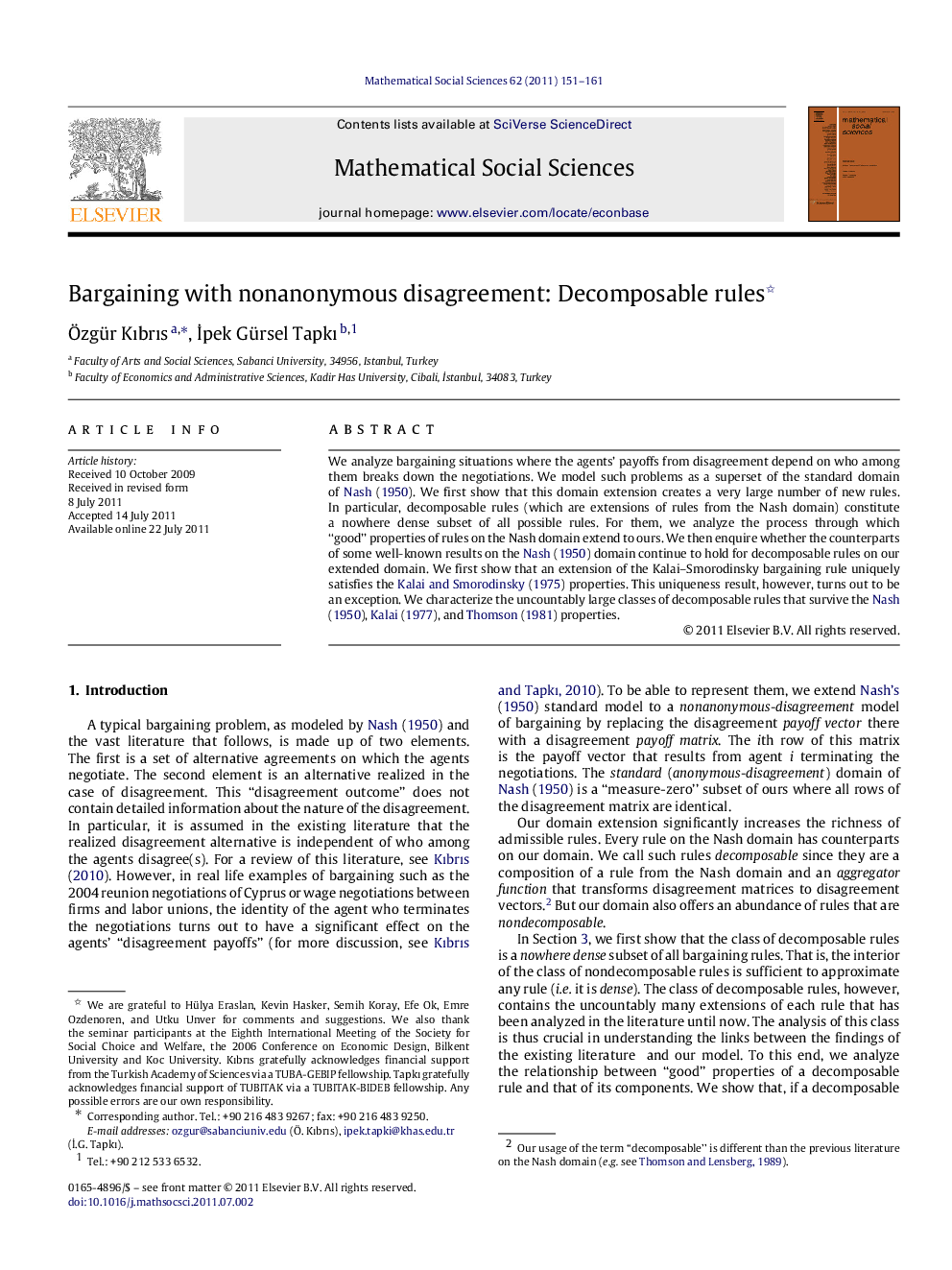| Article ID | Journal | Published Year | Pages | File Type |
|---|---|---|---|---|
| 972056 | Mathematical Social Sciences | 2011 | 11 Pages |
We analyze bargaining situations where the agents’ payoffs from disagreement depend on who among them breaks down the negotiations. We model such problems as a superset of the standard domain of Nash (1950). We first show that this domain extension creates a very large number of new rules. In particular, decomposable rules (which are extensions of rules from the Nash domain) constitute a nowhere dense subset of all possible rules. For them, we analyze the process through which “good” properties of rules on the Nash domain extend to ours. We then enquire whether the counterparts of some well-known results on the Nash (1950) domain continue to hold for decomposable rules on our extended domain. We first show that an extension of the Kalai–Smorodinsky bargaining rule uniquely satisfies the Kalai and Smorodinsky (1975) properties. This uniqueness result, however, turns out to be an exception. We characterize the uncountably large classes of decomposable rules that survive the Nash (1950), Kalai (1977), and Thomson (1981) properties.
► We analyze negotiations where disagreement payoffs depend on the disagreer. ► Decomposable rules constitute a nowhere dense subset of all possible rules. ► We characterize rules that survive Nash (1950), Kalai (1977), and Thomson (1981) axioms. ► An extension of the Kalai and Smorodinsky (1975) rule uniquely satisfies their properties.
